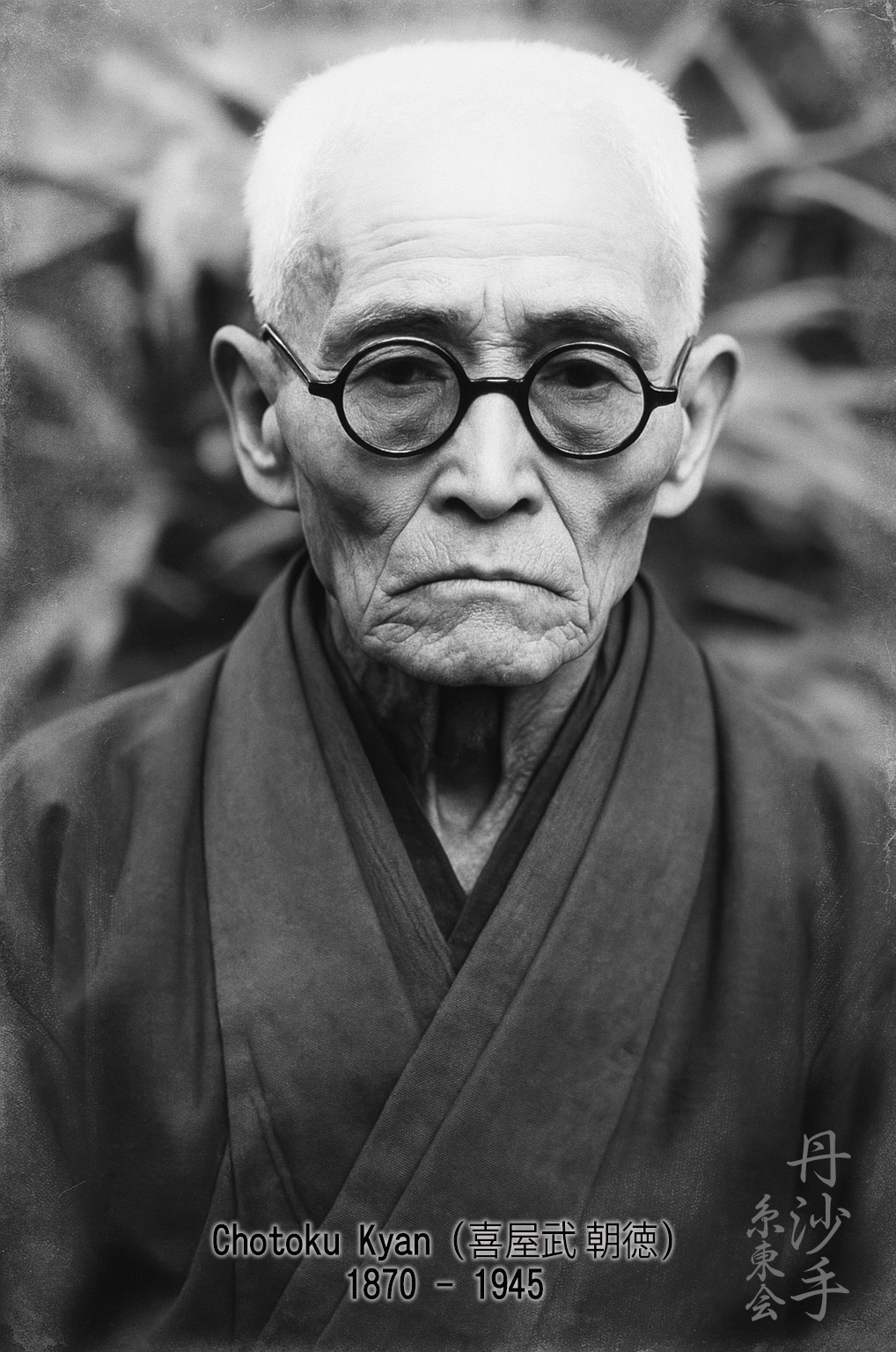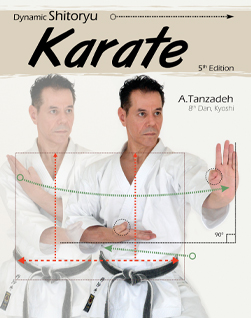Master Chōtoku Kyan (1870–1945) was one of the most influential Okinawan karate masters of the early 20th century. Born into a noble family in Shuri, Okinawa, he was the son of a high-ranking court official of the Ryukyu Kingdom. Although he was physically small and had poor eyesight from an early age, his determination and perseverance led him to become a master of karate and a revered figure in Okinawan martial arts history.
Kyan studied under some of the most renowned karate masters of his time, including Matsumura Sōkon, Ankō Itosu, Yasutsune Azato, Kosaku Matsumora, and Peichin Oyadomari. Through these teachers, he inherited a wide variety of kata and fighting methods, many of which he blended and refined into his personal expression of the art. He was known for his speed, precision, and fluidity of motion, often emphasizing natural movement, evasion, and timing over brute strength.
Kyan was not only a technical expert but also a humble and generous teacher. He taught many students who later became foundational figures in modern karate, such as Shōshin Nagamine (founder of Matsubayashi-ryū), Tatsuo Shimabuku (founder of Isshin-ryū), and Zenryō Shimabukuro (founder of Shōrin-ryū Seibukan). Through them, Kyan’s teachings influenced multiple karate styles, helping to shape the future of Okinawan and Japanese martial arts.
Throughout his life, Master Kyan remained committed to preserving the traditional spirit of Okinawan karate. He believed that karate was more than a system of self-defense; it was a path of character development, discipline, and harmony with nature. Even during times of hardship, including the chaos of World War II, he continued to teach and live by the values of the martial way.
Master Kyan passed away in 1945, reportedly from malnutrition in the aftermath of the Battle of Okinawa. Yet, his legacy lives on through his students and the systems they established. Today, he is remembered not only as a master technician but also as a symbol of Okinawa’s indomitable spirit and its rich martial heritage.






